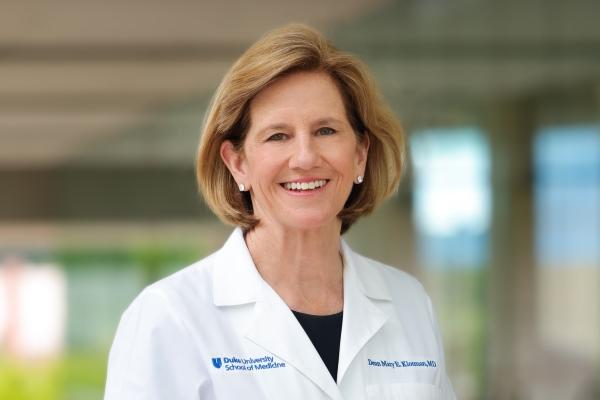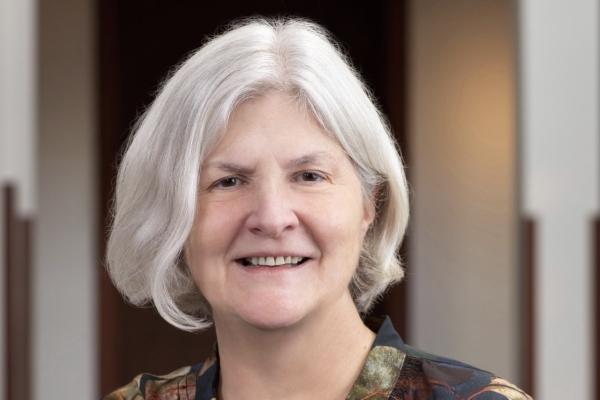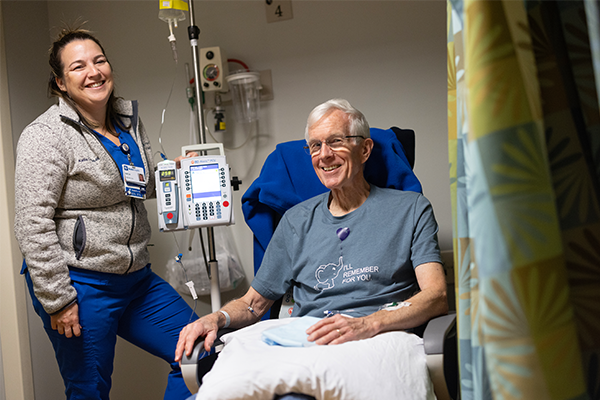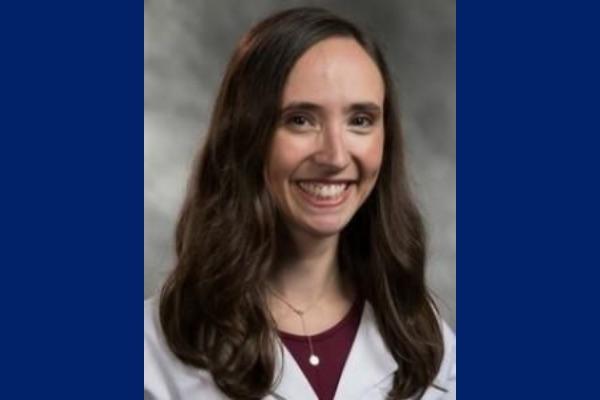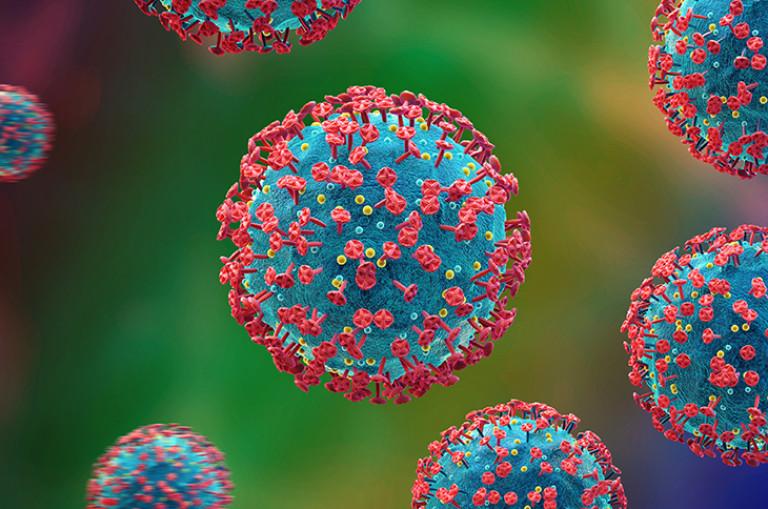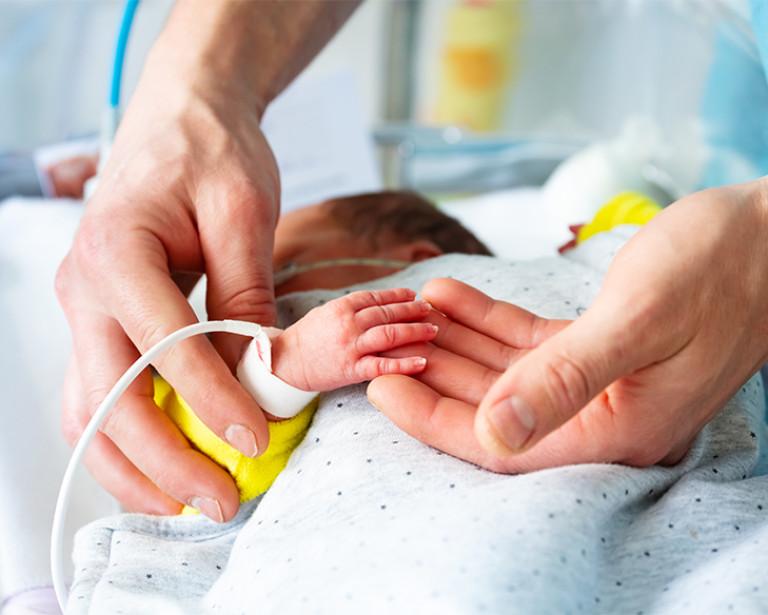The Deans: Mary E. Klotman, BS'76, MD'80, HS'80-'85
Mary E. Klotman, BS’76, MD’80, HS’80-85, is Executive Vice President for Health Affairs at Duke University, Dean of Duke University School of Medicine, and Chief Academic Officer for Duke University Health System. She was appointed dean in 2017, after serving for seven years as chair of the Department of Medicine, and re-appointed in 2022.
The Deans: R. Sanders “Sandy” Williams, MD’74, HS’77-’80
R. Sanders “Sandy” Williams, MD’74, HS’77-’80, is a professor of medicine in the Division of Cardiology at Duke University School of Medicine. He was Dean of the School of Medicine from 2001-2007 and Senior Vice Chancellor of Academic Affairs from 2001-2010. He currently serves in advisory roles on issues including Duke Science and Technology and research translation and commercialization.
The Deans: Nancy Andrews, MD, PhD
Nancy Andrews, MD, PhD, is Executive Vice President and Chief Scientific Officer at Boston Children's Hospital and Professor in Residence in Pediatrics at Harvard Medical School. She was Dean of the School of Medicine and Vice Chancellor for Academic Affairs at Duke University from 2007-2017.
School of Medicine Faculty, Staff Receive 2024-25 Presidential Awards
Three individuals within the School of Medicine and one Duke Health team were among the recipients of the prestigious 2024-25 Duke Presidential Awards.
Alzheimer’s Clinic Provides Time and Hope
Last year, Duke became the first institution in North Carolina to offer lecanemab, the first drug targeting the underlying processes of Alzheimer’s disease that has shown a clinical benefit. Duke now conducts the largest lecanemab clinic in the state, giving early-stage Alzheimer’s patients the gift of time and raising awareness about the need for more research.
EXTENDing Hope: Artificial Wombs for Safer Neonatal Development
Duke researchers found that, in animal models, supporting pre-term fetuses in an artificial womb until they reach late pre-term gestational age results in brain tissue gene expression that more closely resembles that of late pre-term fetuses than those born prematurely.
85 Years of Duke Leadership in ECT Treatment, Research, and Education
Duke has a long and influential institutional history of providing electroconvulsive therapy clinical services, training clinicians to thoughtfully and effectively administer ECT, and advancing the science of ECT through cutting-edge research.
HIV Vaccine Candidate Activates Crucial Immune Function
Researchers at the Duke Human Vaccine Institute successfully created an HIV vaccine candidate that guides key immune cells along an evolutionary pathway to become broadly neutralizing antibodies. Further tests in primates and humans are planned.
Bohórquez, Brinkley-Rubinstein Receive Presidential Early Career Awards
Diego V. Bohórquez, PhD, and Lauren Brinkley-Rubinstein, PhD, were among the nearly 400 recipients of Presidential Early Career Awards for Scientists and Engineers honors announced by The White House this week.
Study Confirms Brief Apnea Risk after Vaccination of Hospitalized Preemies
Hospitalized premature infants who received recommended two-month vaccinations had an increased risk of a short episode of apnea but no serious complications, according to a study led by Duke Health researchers.
